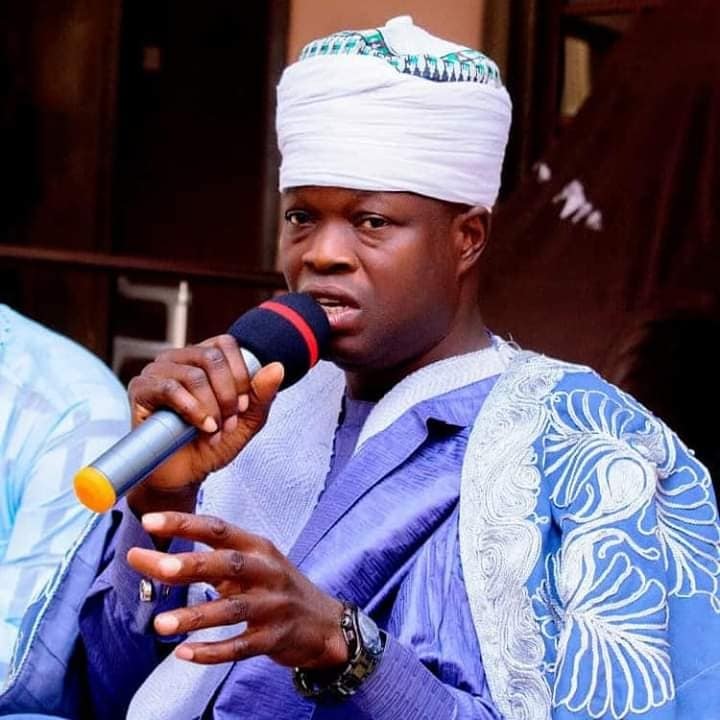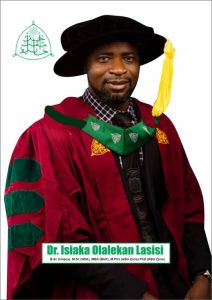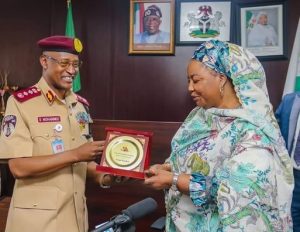Religion plays a pivotal role in the lives of millions worldwide, and within the Muslim community, the position of the Chief Imam holds immense significance. Today, we delve into the history of a distinguished lineage of Chief Imams, tracing their journey from the past to the present. Join us as we explore the lives and contributions of these remarkable individuals who have guided and inspired their communities through their spiritual leadership.
Imam Malik Shita: The Foundation Layer
Our journey begins with Imam Malik Shita, the first recorded Chief Imam of the community. His tenure marked the establishment of a solid foundation for the Islamic faith in the region. Despite the challenges of his time, Imam Malik Shita’s unwavering dedication and commitment to his congregation left an indelible mark on the community’s religious landscape. He was not only a spiritual leader but also a visionary who saw the potential for a strong, faith-driven community.
Imam Bakar Shita: The Enlightened Successor
Following in the footsteps of his predecessor, Imam Bakar Shita assumed the role of Chief Imam, carrying forward the legacy of spiritual guidance and enlightenment. Under his leadership, the community witnessed a period of growth and development, fostering a deeper understanding of Islamic teachings. Imam Bakar’s tenure was characterized by his emphasis on education and the propagation of knowledge, which laid the groundwork for a learned and devout community.
Imam Abdulrahman Shita: The Scholar and Sage
Imam Abdulrahman Shita, known for his profound knowledge and spiritual wisdom, brought a renewed sense of devotion and spiritual enrichment to the community. His dynamic leadership and emphasis on community engagement laid the groundwork for a stronger and more united congregation. Imam Abdulrahman’s sermons were known for their depth and insight, often drawing from a vast reservoir of Islamic scholarship to inspire and educate his followers.
Imam Abdulkarim Malik: The Compassionate Reformer
The appointment of Imam Abdulkarim Malik ushered in an era of increased inclusivity and social outreach. His compassionate nature and tireless efforts to serve the underprivileged elevated the Chief Imam role beyond religious responsibilities, making a positive impact on the lives of countless individuals. Imam Abdulkarim’s leadership was marked by his active involvement in social justice causes, advocating for the rights and dignity of every member of the community.
Imam Usamat Malik: The Visionary Innovator
Imam Usamat Malik, a visionary leader, embraced innovation and modernity while upholding the core values of the faith. His progressive approach to religious education and community empowerment fostered a spirit of intellectual curiosity and open dialogue, encouraging the congregation to grow both spiritually and intellectually. Imam Usamat’s efforts to integrate contemporary issues with traditional teachings made the faith more accessible and relevant to the younger generation.
Imam Falili Malik: The Bridge Builder
Imam Falili Malik’s tenure as Chief Imam witnessed significant strides in interfaith dialogue and collaboration. He actively promoted tolerance, understanding, and cooperation among different religious communities, establishing a harmonious coexistence that became a hallmark of his leadership. His initiatives in building bridges between diverse faith groups have left a lasting legacy of peace and mutual respect.
Imam Salih Bakar: The Advocate for Justice
Imam Salih Bakar, a steadfast advocate for social justice and equality, used his position to address societal issues and advocate for positive change. His sermons and initiatives focused on promoting peace, justice, and compassion, inspiring the congregation to actively contribute to the betterment of society. Imam Salih’s leadership was instrumental in mobilizing the community towards social activism and civic responsibility.
Imam Husain Abdulrahman: The Spiritual Mentor
Imam Husain Abdulrahman, a respected scholar and spiritual guide, emphasized the importance of spiritual introspection and personal growth. His teachings and mentorship empowered individuals to develop a deeper connection with their faith and strive for excellence in all aspects of life. Imam Husain’s focus on personal development and spiritual enrichment has inspired many to lead more fulfilling and devout lives.
Imam Salih AbdulKarim: The Unity Champion
Imam Salih AbdulKarim’s leadership highlighted the significance of community unity and solidarity. Through various initiatives and programs, he fostered a sense of belonging among the congregation, encouraging them to work together for the greater good and to overcome challenges collectively. His emphasis on unity and collaboration has strengthened the bonds within the community, making it more resilient and cohesive.
Imam Muhyideen Salman Husain: The Modern Torchbearer
In our present era, Imam Muhyideen Salman Husain carries the torch of spiritual guidance and enlightenment. His forward-thinking vision and commitment to fostering intergenerational harmony have enabled the community to adapt to the evolving needs of the times while remaining rooted in the principles of Islam. Imam Muhyideen’s leadership continues to inspire and guide the community towards a future filled with promise and faith.
The lineage of Chief Imams presented above represents a rich tapestry of spiritual leadership, each individual leaving an enduring legacy of faith, compassion, and community development. As we reflect on their contributions, we recognize the pivotal role Chief Imams play in guiding and inspiring their communities towards a path of righteousness, unity, and social progress. Their commitment to the principles of Islam continues to shape the lives of countless individuals, leaving an indelible impact on the Muslim community as a whole.























